The most popular cloud platform is Amazon Web Services (AWS), which provides over 200 fully functional services from data centers all over the world. The demand for cloud professionals has surged in recent years, and AWS Solution Architects are among the most sought-after experts. In this article, we will explore the certification path for AWS Solutions Architects and how you can grow your skills, career prospects, and earning potential by following a strategic learning and certification route.
Why Become an AWS Solutions Architect?
An AWS Solutions Architect builds scalable, dependable, and secure cloud-based solutions utilizing AWS services. The role involves understanding business requirements and recommending appropriate architectural designs for deployment in the cloud. Becoming an AWS Solutions Architect has several strong benefits:
- High Demand: The cloud computing market continues to expand, creating a growing need for professionals with AWS expertise.
- Attractive Salary: According to salary reports, AWS-certified Solutions Architects earn some of the highest salaries in the IT sector.
- Diverse Opportunities: Technology, healthcare, and finance are just a few of the areas where solutions architects operate.
- Career Growth: AWS certifications open doors to advanced roles and specialized cloud architecture positions.
Overview of AWS Certifications
AWS certifications validate your cloud skills and expertise. There are basic, associate, professional, and specialty-level certificates in the AWS Solutions Architect certification route. Let’s break down each of these levels and the key certifications involved.
1. Foundational Level
An overview of AWS cloud ideas, services, and use cases is given at the basic level. For those who are unfamiliar with cloud computing, it is perfect.
AWS Certified Cloud Practitioner
- Who Should Take It: Beginners or non-technical professionals seeking basic cloud knowledge.
- Exam Topics: AWS core services, billing, pricing, and support, as well as basic security and compliance.
- Recommended Experience: Six months of basic AWS cloud experience is advised..
The foundational certification is optional but recommended for those unfamiliar with cloud environments.
2. Associate Level
The associate-level certifications are more technical and designed for individuals with hands-on experience.
AWS Certified Solutions Architect – Associate
- Who Should Take It: IT experts with at least one year of hands-on experience creating AWS-based apps.
- Exam Topics: Designing resilient architectures, implementing high-availability solutions, security features, and cost management.
- Recommended Experience: A solid understanding of AWS core services, networking, and security.
3. Professional Level
This level is for experienced Solutions Architects who design complex, large-scale architectures.
AWS Certified Solutions Architect – Professional
- Who Should Take It: Professionals with at least two years of comprehensive experience in designing and deploying cloud architectures.
- Exam Topics: Advanced networking, data storage, migration strategies, and complex architecture design.
- Recommended Experience: Deep knowledge in AWS services and best practices for enterprise-grade solutions.
4. Specialty Certifications
Specialty certifications focus on specific technical domains AWS provides a number of specialist certificates, such as
- AWS Certified Advanced Networking
- AWS Certified Security.
- AWS Certified Machine Learning – Specialty
These certifications are ideal for architects looking to specialize in areas such as machine learning, security, or networking.
Offers AWS Classes led by certified instructors with industry experience, providing hands-on labs and projects to apply knowledge in real-world scenarios.
Recommended Certification Route for AWS Solutions Architects
Your certification path depends on your background, experience, and career goals. Below is a recommended route for becoming a well-rounded AWS Solutions Architect:
Start with the Cloud Practitioner Certification (Optional)If you are new to cloud computing or AWS, the foundational certification is a good starting point.
- Earn the AWS Certified Solutions Architect – Associate This is the essential certification for Solutions Architects and provides the core knowledge required for designing cloud solutions.
- Gain Real-World Experience Hands-on experience is invaluable. Work on real-world projects, practice with AWS labs and deepen your knowledge.
- Advance to the AWS Certified Solutions Architect – Professional Once you have mastered the associate level, pursue the professional certification to validate your advanced skills.
Consider Specialty Certifications Depending on your career aspirations, explore specialty certifications to specialize in niche areas.
Tips for Success
1. Understand the Certification Paths
AWS provides a number of certificates grouped into Foundational, Associate, Professional, and Specialty levels. Choose the certification that aligns with your current knowledge and career goals. For beginners, starting with the AWS Certified Cloud Practitioner provides a solid foundation, while experienced professionals may aim for advanced credentials like AWS Certified Solutions Architect – Professional. Understanding the certification hierarchy helps create a clear roadmap for your learning journey.
2. Master the Basics of Cloud Computing
Make sure you understand the basics of cloud computing before delving deeply into AWS services, such as:
Cloud computing models (IaaS, PaaS, SaaS).
Global infrastructure concepts like availability zones and regions.
Shared responsibility model for cloud security.
This foundational knowledge allows you to understand AWS services in context and build more effective solutions.
3. Leverage Official AWS Training and Documentation
AWS offers a multitude of materials, including:
AWS Training and Certification courses that align with specific exams.
AWS Whitepapers and FAQs that provide in-depth insights into architectural best practices and service use cases. Regularly reviewing official AWS documentation helps reinforce your understanding and ensures you stay up to date with new service offerings and updates.
4. Use Hands-On Practice and Labs
Gaining practical experience is crucial to become proficient with AWS. Set up a free-tier AWS account to explore various services including EC2, S3, Lambda, and Cloud Formation. Using platforms like AWS Skill Builder or third-party cloud labs allows you to apply theoretical knowledge and develop real-world skills by building and managing cloud environments.
5. Take Advantage of Practice Exams
Practice exams help you become familiar with the format and complexity of AWS certification questions. They provide insight into areas where additional study is needed. Platforms like AWS Practice Exams and third-party providers offer simulated tests to build confidence and improve exam readiness.
6. Join Study Groups and Communities
Collaborating with others can enhance learning. Participate in forums like:
AWS Community Groups.
Reddit AWS Certification discussions.
LinkedIn and Slack communities for AWS learners.
Sharing insights, resources, and experiences with peers helps reinforce your knowledge and offers valuable perspectives.
7. Focus on Core Services and Scenarios
AWS exams often test your understanding of specific services and real-world scenarios. Prioritize learning the core services relevant to your certification, including:
Compute (EC2, Lambda, Elastic Beanstalk).
Storage (S3, EBS, Glacier).
Networking (VPC, Route 53, CloudFront).
Databases (RDS, DynamoDB).
Review case studies and common architectural patterns to understand how these services are used in practical applications.
8. Develop Time Management Skills for the Exam
AWS certification exams have multiple-choice and scenario-based questions within a limited timeframe. Practice time management by:
Reading questions carefully to understand the key requirement.
Eliminating incorrect answers to narrow your choices.
Allocating time for review to revisit flagged questions.
Effective time management reduces exam stress and maximizes your chances of success.
9. Stay Motivated and Consistent
Mastering AWS concepts requires consistency. Create a study schedule with regular, focused sessions. Utilize motivating strategies such as rewarding yourself for reaching objectives and imagining the career advantages of certification accomplishment. Divide your study into digestible portions and establish clear benchmarks.
These strategies will help you pass AWS certification exams and improve your knowledge of cloud computing. The keys to success on this path are commitment, practical experience, and a well-organized approach.
Career Opportunities and Growth
1. Cloud Solutions Architect
An architect for cloud solutions creates and deploys cloud computing solutions to satisfy business requirements. They are responsible for developing architectural blueprints, choosing appropriate cloud services, and ensuring systems are scalable, reliable, and secure. Cloud Solutions Architects collaborate with stakeholders, including developers, project managers, and business leaders, to translate technical requirements into practical solutions. Their expertise in AWS tools and services makes them pivotal in creating innovative cloud infrastructures.
Key Responsibilities:
Designing cloud-native architectures and hybrid solutions.
Selecting appropriate AWS services for application and infrastructure optimization.
Providing technical leadership and best practices for cloud-based solutions.
Skills and Expertise:
Proficiency in AWS services including EC2, S3, Lambda, and RDS.
Strong understanding of networking, security, and cost optimization in the cloud.
Experience with microservices and serverless computing.
2. Cloud Engineer
Cloud environments must be deployed, managed, and maintained by cloud engineers. In order to construct and enhance cloud-based infrastructures, they collaborate closely with developers and architects. Cloud Engineers guarantee seamless operations by automating procedures and fixing performance or security concerns.
Key Responsibilities:
Building and managing cloud infrastructure using AWS services.
Automating deployment pipelines and managing configurations.
Ensuring system reliability, scalability, and security.
Skills and Expertise:
Experience with infrastructure as code (IaC) tools like Terraform or AWS CloudFormation.
Knowledge of AWS services, networking, and storage solutions.
Strong programming abilities in Python, Bash, or PowerShell.
3. DevOps Engineer
In order to expedite software delivery, DevOps engineers concentrate on connecting the development and operations processes. They build CI/CD pipelines, automate deployments, and monitor system performance. By integrating AWS services, DevOps Engineers boost productivity and reliability in software delivery cycles.
Key Responsibilities:
Creating and administering CI/CD pipelines using AWS Code Pipeline, Jenkins, or GitLab CI.
Automating infrastructure provisioning and configuration.
Monitoring applications and optimizing performance.
Skills and Expertise:
Expertise in AWS services like Code Deploy, Elastic Beanstalk, and CloudWatch.
Understanding of orchestration using Kubernetes or AWS ECS, as well as containerization tools like Docker.
Strong knowledge of version control technologies like Git.
4. Cloud Consultant
Cloud Consultants advise businesses on how to best use cloud technologies to achieve their goals. They assess existing IT environments, recommend cloud migration strategies, and ensure the successful adoption of AWS services. When it comes to helping firms navigate cloud changes, cloud consultants are strategically important.
Key Responsibilities:
Analyzing business requirements and creating cloud migration roadmaps.
Designing tailored cloud solutions and cost-optimization strategies.
Providing training and assistance to internal teams on AWS best practices.
Skills and Expertise:
Strong familiarity with cost management, migration tactics, and AWS architecture.
The capacity to evaluate company requirements and match them with cloud-based solutions.
Outstanding presentation and communication abilities to explain difficult technical ideas.
These roles demonstrate the vast and dynamic career opportunities available to AWS Solutions Architects. The combination of specialized cloud knowledge, hands-on expertise, and strategic insight positions professionals in these roles for long-term growth and success.
Furthermore, companies strongly respect a dedication to innovation and ongoing learning, which is demonstrated by AWS certifications.
Conclusion
The journey to becoming an AWS Solutions Architect involves continuous learning and strategic certification choices. By following a structured path—starting with foundational knowledge and progressing to advanced and specialty certifications—you can enhance your expertise, career prospects, and earning potential. More than simply credentials, AWS certifications serve as entry points to a fulfilling and exciting career in cloud computing.

